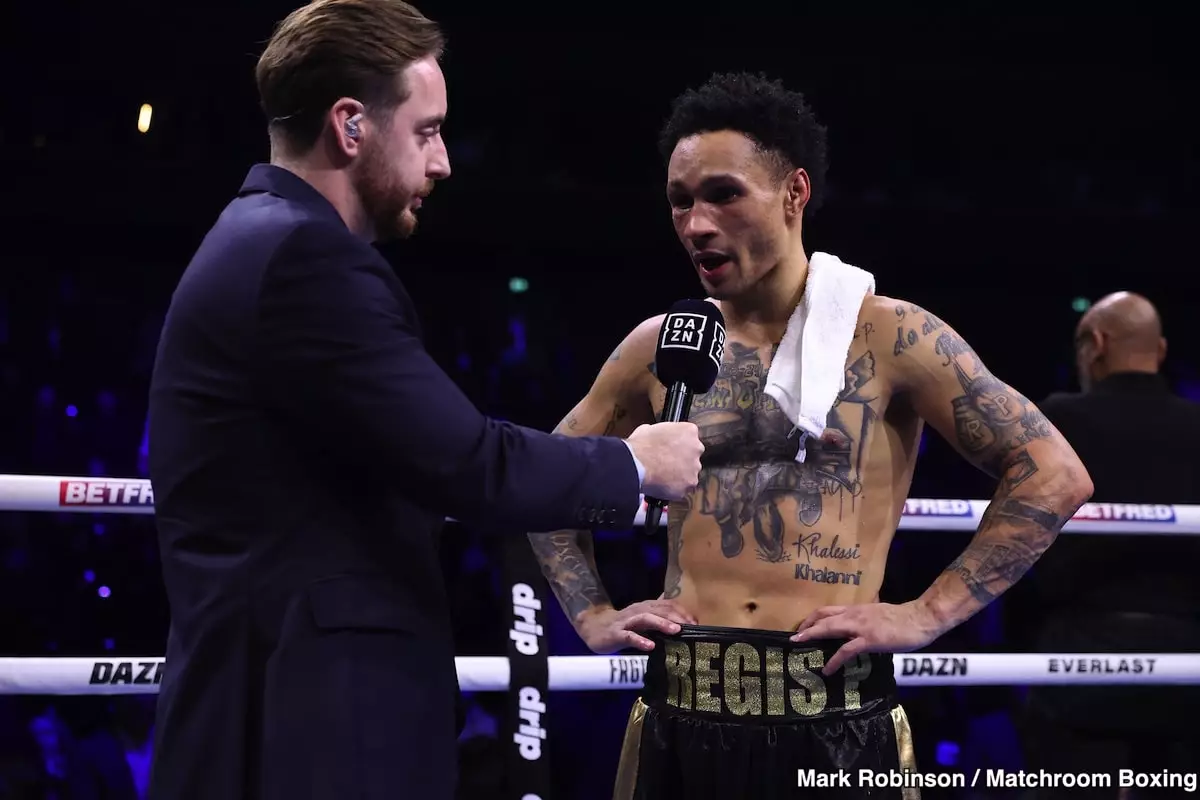Regis Prograis finds himself at a significant crossroads following his recent loss to Jack Catterall at the Co-op Live Arena in Manchester. The twelve-round unanimous decision underscored a potential shift in the trajectory of Prograis’s career, pushing him to contemplate a transition to the welterweight division. With an impressive record of 29 wins and 3 losses, including 24 knockouts, the defeat raised questions about his future in boxing and the strategic choices he must make moving forward.
As Prograis considers his next steps, he is reflective about the challenges he has faced as a light welterweight. Having spent his entire professional life fighting at 140 pounds, he is contemplating a move to 147 pounds. Prograis expressed a desire to finally act on his long-standing aspirations to increase his weight class, especially after feeling the physical toll of competing at his current weight. The transition to welterweight could reinvigorate his career, allowing him to capitalize on his skills against potentially more favorable matchups.
One pivotal aspect of Prograis’s recent performances—particularly against defensive fighters like Catterall and Devin Haney—is his vulnerability to styles that prioritize movement over engagement. Prograis described Catterall as a “defensive artist,” similar in approach to the finesse of Shakur Stevenson. The fight was not only a tactical miscalculation on Prograis’s part but also a reflection of a broader issue regarding his adaptability in the ring.
Against Catterall, Prograis struggled to cut off the ring and apply pressure, allowing his opponent to dictate the pace of the fight. This has led to criticism about his choice to accept such a matchup. Ideally, an agile fighter like Prograis should prioritize engagements with opponents who are willing to trade punches rather than evade them. The outcome of the fight may prove to be a learning experience, emphasizing the importance of fighting styles and strategic decision-making in the sport.
In light of his recent defeat, Prograis faces an essential decision: pursue another shot at glory or consider retirement as a realistic option. While he initially wished to become a three-time champion in the light welterweight division, the recent setbacks may compel him to pivot his ambitions. Prograis expressed uncertainty, stating, “Sometimes, it might not be for you.” He openly acknowledged that his desires may need to recalibrate.
The option to move up to welterweight is appealing, but it raises questions about whether this shift can serve as a foundation for future successes. Confronting an evolving landscape of opponents in a new weight class could present both challenges and opportunities. It is crucial for Prograis to find the right balance between ambition and practicality.
If Prograis decides to continue his career in the welterweight division, there are potential matchups that could aid in his resurgence. One particular opponent that stands out is Mario Barrios, the current WBC welterweight champion. Barrios’s style diverges significantly from that of Catterall and Haney, as he is known for his willingness to engage in brawls. Such a matchup could play to Prograis’s strengths and provide an opportunity for a more action-oriented fight.
However, as Prograis contemplates future opponents, he must also address his training and conditioning. During bouts against Catterall and Haney, he exhibited signs of fatigue, questioning his stamina during pivotal rounds. It is essential for Prograis to enhance his cardiovascular capacity to compete effectively, particularly against fighters who can endure through all 12 rounds.
Ultimately, Regis Prograis stands at a crucial juncture in his professional journey. His defeat by Jack Catterall may serve as a galvanizing force, pushing him to reassess his career strategies fully. The decision to either remain at 140 pounds or transition to 147 pounds will shape the narrative of his future fights. Prograis must evaluate his options thoroughly, balancing ambition with realistic considerations while honing his skills to become a more formidable fighter. As he reflects on his storied career, the coming months will likely determine if he steps onto the path toward redemption or closure.

